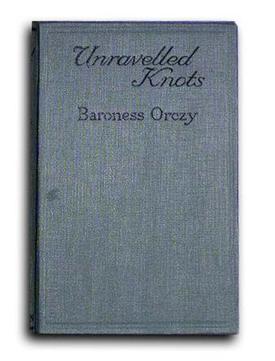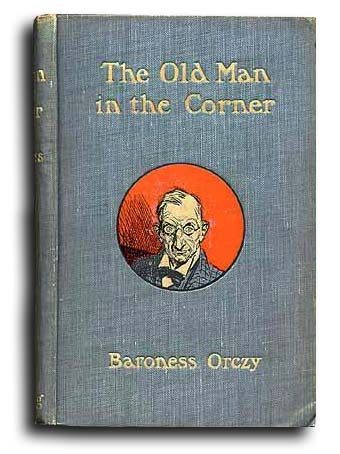By Baroness Orczy.
Doubleday, Doran.
1928. $2.00
Collection: 12 stories.
It looks as if unscrupulous lawyers were irresistibly attractive to Golden Age writers.
Here is a contemporary assessment (THE SATURDAY REVIEW, December 22, 1928):
In a dozen short stories, Alexander Stanislaus Mullins, confidential clerk to Patrick Mulligan, the lawyer-detective whose nickname gives the book its title, tells how his master saved a dozen clients who were unjustly accused of a couple of dozen crimes.
There is not much that is either novel or exciting in the walls of apparently irrefragable evidence reared around these suspects, nor in the manner in which Skin o' my Tooth topples them over.From Wikipedia ("Skin o' My Tooth"):
[The central character] Mulligan is an ugly, portly, but particularly sharp Irish lawyer who goes to great lengths (even unscrupulous ones) to get his clients off. Usually this involves him solving the crimes himself. The nickname comes from one client who described Mulligan freeing him "by the skin o' my tooth."Contents:
"The Murder in Saltashe Woods"
"The Case of the Sicilian Prince"
"The Duffield Peerage Case"
"The Kazan Pearls"
"The Case of Major Gibson"
"The Inverted Five"
"The Turquoise Stud"
"Overwhelming Evidence"
"The Case of Mrs. Norris"
"The Murton-Braby Murder"
"A Shot in the Night"
"The Hungarian Landowner"
The text is available at PROJECT GUTENBERG, AUSTRALIA.
The creator of the Scarlet Pimpernel originated other characters as well:
Orczy was an early pioneer of the detective story, with no fewer than three series characters: The Old Man in the Corner, an armchair detective who unravels mysteries, along with knotted pieces of string, in the Lyons corner tea-shop for a young woman journalist, and who reappears in 'Unravelled Knots'; Skin O' My Tooth, the nickname given to an elderly and unconventional lawyer; and Lady Molly of Scotland Yard. — The GAD Wiki ("Orczy, Baroness Emmuska")A few other reviews of Orczy's non-Pimpernels:
THE CASE OF MISS ELLIOTT (1905): "The stories contained in a volume by Baroness Orczy, entitled 'The Case of Miss Eliot' (6 s.), will certainly appeal to all lovers of mysteries, though for ordinary readers they may prove rather too gruesome. Some of the 'cases' are cleverly presented and well worked out." — THE BOOKMAN (U.K.) (November 1905; scroll to page 94) [See also WIKIPEDIA]
LADY MOLLY OF SCOTLAND YARD (1910): "The female Sherlock Holmes was bound to arrive in fiction, and it was as inevitable that she should have her subordinate, Mary Granard, who plays the role of Watson. Lady Molly, however, works in connection with Scotland Yard, and she has neither chemistry nor the violin as recreations. The twelve stories in which her feminine wit is described are of the ordinary detective class, put together with the authoress's well-known skill. In the last of them, Lady Molly succeeds in clearing her husband of suspicion on a charge of murder, and this enables her to retire from detective work. It also enables Miss Granard to explain how her dear lady managed to keep her position in society and at the same time to practise her profession. People who like the brandy of criminology can have twelve sips in this book. The authoress knows how to blend and serve up her stuff, and probably her large public will be curious to see how she contrives to excite them in this new role. Probably, also, they will persuade her that Lady Molly's marriage need not interrupt finally her career as a feminine detective." — THE BOOKMAN (U.K.) (October 1910)All of these and more are covered by Mike Grost ("Baroness Orczy") on his mega-site. Did you know, for example, that she helped pioneer the "armchair detective" story? With that in mind, enjoy this Old Man in the Corner story, "The Regent's Park Murder."
Category: Detective fiction




Thank you for posting this information. I found it to be very helpful. I also like the photographs of the books.
ReplyDeleteThank you, Mrs. A. We wish you good reading in the future.
Delete